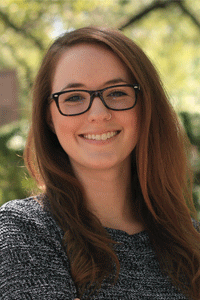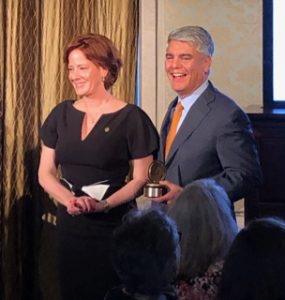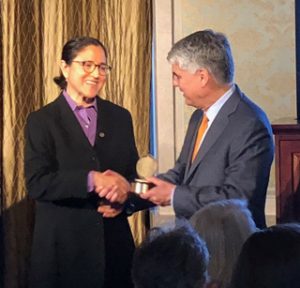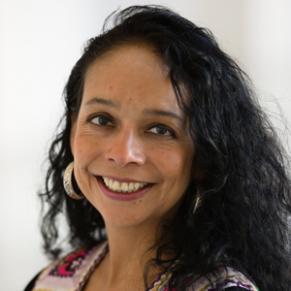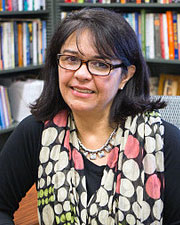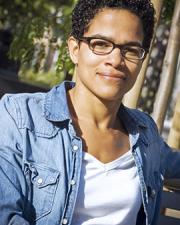By Ruijie Peng
Four distinguished scholars from outside of the University of Texas are visiting the Department of Sociology in the Fall and Spring semesters of 2019/2010 to participate in the graduate student-organized speaker series “Transnational Ethnography: Interconnected Lives and Social Processes.” This series features scholarly research that uses qualitative, especially ethnographic approaches, to study transnational processes and social lives. Their projects span across a wide range of contexts, such as Latin America, North America, East and South Asia. They explore how histories, politics, and human experiences in different national and social contexts are interconnected in the age of globalization and large-scale human movements. These projects not only expand the scope of phenomena more commonly studied in single-country contexts, but their unique methods also bring innovative transnational perspective to social science in general.
___________________________________________________________________
In the Fall 2019 semester, two speakers are visiting to give the following talks and workshops:

Rebecca Tarlau, September 26, 2019
Pennsylvania State University
Talk: “Occupying Schools, Occupying Land: How the Landless Workers Movement Transformed Brazilian Education”
September 26, 2019, 12:00 pm
RLP 1.302D
Rebecca Tarlau is an Assistant Professor of Education and Labor and Employment Relations at the Pennsylvania State University. Her work examines how class, race, and gender hierarchies are reproduced through schools, as well as how social movements use education to contest these inequalities. Rebecca’s forthcoming book, Occupying Schools, Occupying Land: How the Landless Workers Movement Transformed Brazilian Education (Oxford University Press), explores the Brazilian Landless Workers’ Movement (MST) and the attempt to transform public education across the country. This work analyzes the micro-politics of grassroots educational reform, that is, the strategies activists use to convince state actors to adopt their initiatives and the political and economic conditions that affect state-society interactions. Her current research project compares teachers’ movements in Brazil, Mexico, and the United States, examining the conditions and strategies that enable teachers and their unions to transcend narrow economic interests and participate in broader struggles for social justice.

Bin Xu, October 8, 2019
Emory University
Talk: “Chairman Mao’s Children and China’s Difficult Past: Generation and Memory.”
October 8, 2019, 12:00 pm
RLP 1.302E
Workshop: “Reflexivity and Reflections: Two International Ethnographies”
October 8, 2019, 3:00 pm
The Ethnography Lab, RLP 3.214F
RSVP through email (TBD)
Bin Xu is an Associate Professor of Sociology and China Studies at Emory University. His research focuses on collective memory of revolutionary China, cultural sociology of civic life, disaster research, and social movements. His award-winning book, Compassionate Politics: The Sichuan Earthquake and Civic Engagement in China, examines the unprecedented wave of self-organized civic engagement involving hundreds of thousands of Chinese citizens in the aftermath of the 2008 Sichuan Earthquake. Currently, he is working on a book project, Chairman Mao’s Children and China’s Difficult Past: Generation and Memory. The book examines the memory of China’s “zhiqing (知青)” (short for zhishi qingnian, the “educated youth”) generation—the 17 million urban, secondary school graduates were transferred to settle in villages, semi-military corps, and state farms in the 1960s and 1970s.
___________________________________________________________________
In the Spring 2020 semester, two speakers are visiting to give the following talks and workshops:

Abigail Andrews, February 13, 2020
University of California-San Diego
Talk and workshop titles TBA
Abigail Andrews is an Assistant Professor of Sociology and Urban Studies at the University of California-San Diego, and the co-director of Mexican Migration Field Research and Training Program in UCSD. Her research interests are in gender, migration, state power, and grassroots agency. She particularly focuses on the struggles of marginalized groups in Mexico and the United States, including indigenous peasants, deportees, and undocumented immigrants. Her well-acclaimed book, Undocumented Politics: Place, Gender, and the Pathways of Mexican Migrants (University of California Press 2018), examines the communities’ struggles for rights and resources across the U.S.-Mexico divide.

Hae Yeon Choo, April 13, 2020
University of Toronto
Talk and workshop titles TBA
Hae Yeon Choo is an Associate Professor in the Department of Sociology at the University of Toronto. Her research centers on gender, citizenship, transnational migration, and urban sociology to examine global social inequality. In her empirical and theoretical work, she employs an intersectional approach to social inequalities, integrating gender, race, and class in her analyses. Her latest book, Decentering Citizenship: Gender, Labor, and Migrant Rights in South Korea, is a multi-sited and comparative ethnographic research that offers an account of how inequalities of gender, race, and class affect migrants’ practice of rights through studying three groups of Filipina women in South Korea. Her previous works include “The Cost of Rights: Migrant Women, Feminist Advocacy, and Gendered Morality in South Korea” (Gender & Society 2013), and “The Transnational Journey of Intersectionality” (Gender & Society 2012).
___________________________________________________________________
In addition to a public lecture, each speaker will host a workshop session with graduate students on conducting transnational ethnographic research to study globalization, migration, political mobilization, and racialization. These workshops will cover processes such as conceptualizing research questions; negotiating access to study sites; conducting multi-sited fieldwork; collecting and organizing data; critically analyzing data; using intersectional and/or transnational feminist frameworks throughout the research processes; and diffusing research findings to the broader public to initiate positive social transformations.
The “Transnational Ethnography” speaker series is part of an ongoing student-led initiative in the Urban Ethnography Lab called “Ethnographic Approaches,” which was established with the support of the Academic Enrichment Fund. In the 2018-2019 academic year, the “Critical Criminology” speaker series brought prominent scholars from across the U.S. to campus, including Nikki Jones (UC-Berkeley), Cecilia Menjívar (UCLA), and Guadalupe Correa-Cabrera (GMU).
This speaker series is organized by hosted by UT Austin graduate students Chen Liang (PhD student) and Ruijie Peng (PhD candidate). It is hosted by the Urban Ethnography Lab and generously supported by the Academic Enrichment Fund, Asian Studies Department, Center for Asian American Studies, Center for East Asian Studies, Center for Mexican American Studies, LLILAS and POSCO Chair in Korean Studies Endowment. If you need more information or would like to volunteer to support the events, please contact the student organizers Chen Liang (chenliang1224@utexas.edu) and Ruijie Peng (ruijie.peng@utexas.edu).
Ruijie Peng is a PhD Candidate in the Department of Sociology at the University of Texas at Austin. Ruijie researches labor, gender, race and ethnicity, political economy, development, global and transnational sociology. Her current research is a 15-month ethnographic study of home support and women’s labor against the backdrop of rural-urban migration in southwest China.

